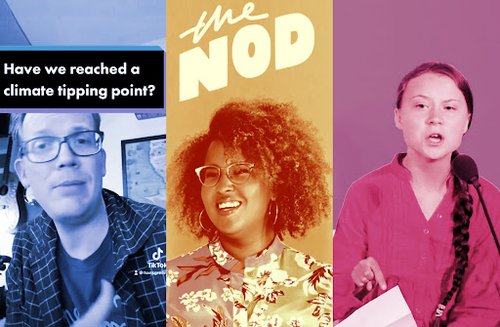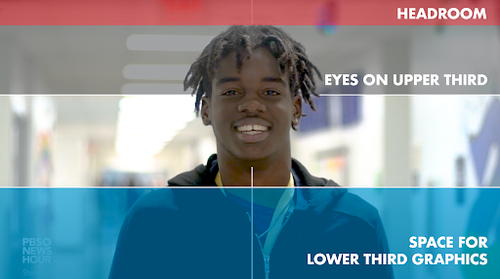Across the country, there’s ongoing conversation about what gets taught in schools—how history, current events, and even books are presented. But learning doesn’t just happen in classrooms. Young people are constantly exploring the world through content they find online, in their communities, and beyond.
SRL wants to hear about educational content—anything from history, culture, science, art, or the environment—that you’ve discovered outside of school and how it’s shifted your perspective.
And don’t worry—“educational” doesn’t have to mean formal. Think of it as discovery: any piece of content that taught you something new or helped you see things differently.

If you plan on having a classroom discussion before assigning this Rapid Response, use this Classroom Conversations Guide to help students feel prepared and supported.
Tell us a story about a time you learned something outside of school (could be something you learned online or from someone you know) and how it expanded your worldview. Check out the guiding questions below to get started, but with this option, we want you to create a 60-second standalone story directly to camera.
Check out SRL’s tutorial on how to record a video diary. Practice before you record, speak from the heart (don’t read from a script!), and remember what makes a compelling story -- a great hook, a conflict or challenge, and a beginning, middle, and end.
Conduct a pre-interview and find a peer who discovered something outside of school that changed how they think about the world (could be something they learned online or from someone they know). Then, use the guiding questions below to record your interview. Remember, these questions are a guide. Feel free to add your own questions and be sure to improvise follow-up questions if your subject says something you want to know more about.
Instruct the subject to look at the camera while speaking. Submit raw footage with a transcript. No editing required.
In addition to your personal narrative or interview, students can participate in a Global Discovery
Steps:
Discussion Questions:
Plan Your Story
Record Your Video
Transcribe & Edit
Share Your Project
This challenge does not have an active deadline to submit to PBS NewsHour Student Reporting Labs. However, students are encouraged to publish their stories on their school/club/program website or through video/social platforms such as YouTube, Instagram or Twitter and tag Student Reporting Labs. Check with your teacher to find out instructions for class submissions.
FACEBOOK: /STUDENTREPORTINGLABS

This resource is part of the Global Education Toolkit and was made possible with support from the Longview Foundation.
Civics teaches the principles—such as adherence to the social contract, consent of the governed, limited government, legitimate authority, federalism, and separation of powers—that are meant to guide official institutions such as legislatures, courts, and government agencies. (NCSS D2.Civ.7.9-12 - D2.Civ.10.9-12)
Students recognize the responsibilities and opportunities for positively contributing to their digital communities. (ISTE)
Students leverage technology to take an active role in choosing, achieving and demonstrating competency in their learning goals, informed by the learning sciences. (ISTE)
Students critically curate a variety of resources using digital tools to construct knowledge, produce creative artifacts and make meaningful learning experiences for themselves and others. (ISTE)
Historical understanding requires recognizing this multiplicity of points of view in the past, which makes it important to seek out a range of sources on any historical question rather than simply use those that are easiest to find. It also requires recognizing that perspectives change over time, so that historical understanding requires developing a sense of empathy with people in the past whose perspectives might be very different from those of today. (NCSS D2.His.4.9-12 - D2.His.8.9-12)
In order to act responsibly and effectively, citizens must understand the important institutions of their society and the principles that these institutions are intended to reflect. That requires mastery of a body of knowledge about law, politics, and government. (NCSS D2.Civ.1.9-12 - D2.Civ.6.9-12)
Video Production
Education
Digital Literacy/Citizenship
History
Projects
Beginner
Intermediate
Advanced
Mic
Camera or Mobile Phone
Internet
1-5 Days